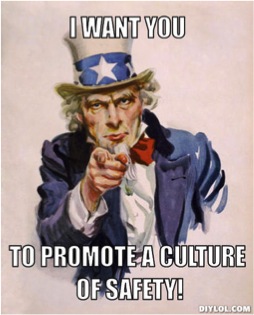Scope of Handbook
This CLASSE Safety Handbook is for the use of employees, faculty, students, and visitors of LEPP and CHESS during their work in any of the CLASSE facilities at Cornell University. This Handbook acts as a guide to the basic principles of working safely in these environments, and should be consulted before any potentially hazardous activity is undertaken. New personnel are required to attend an in-person, CLASSE-specific Basic Safety Training session prior to commencing work. There are also online and/or in-person trainings required by Cornell University policy. Short-term visitors should acquaint themselves with this Handbook as well as request guidance from their local host for further information. We strive to establish a culture of safety, which entails much more than simply compliance with a set of rules. A culture of safety is embodied by the following practices:
We strive to establish a culture of safety, which entails much more than simply compliance with a set of rules. A culture of safety is embodied by the following practices: - Each of us takes responsibility for our own safety and that of people we work with, supervise, or host.
- Safety is valued on par with (or above) scientific achievement and/or task completion.
- Safety concerns are always taken seriously and addressed.
- Safety challenges are approached with intellectual rigor.
- New activities are planned from the start with safety in mind.
- New participants receive relevant safety training immediately & are inculcated with the values of a positive safety culture.
- Every person values and strives for continuous improvement of laboratory safety
According to realdictionary.com, "Safety-first as an accident-prevention slogan first used in Britain in 1873" and may have originated with the US railroads.
According to a Letter to the Editor of the New York Times on Sept. 28, 1915 from Arthur Williams, then President of the American Museum of Safety, the "first organized work in accident prevention in this country was done in 1900 through the Museum of Safety Section of the American Institute of Social Service" (Copyright, The New York Times).
OSHA was founded in 1970.
 Copyright © by the contributing authors. All material on this collaboration platform is the property of the contributing authors.
Copyright © by the contributing authors. All material on this collaboration platform is the property of the contributing authors. Ideas, requests, problems regarding CLASSE Wiki? Send feedback

